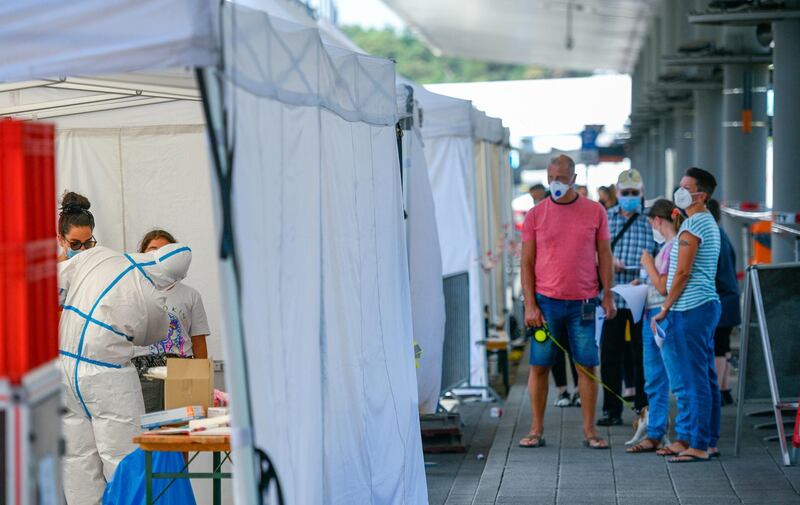People coming to Germany from areas deemed high-risk, such as the United States and Turkey, will have to to take a Covid-19 test or face a €25,000 fine.
The German government said travellers arriving in the country from Saturday could be fined if they do not take the test within 72 hours.
The switch to mandatory testing comes after voluntary tests were introduced at airports weeks ago.
The tests, carried out by the German Red Cross, are free of charge.
Travellers have the option of getting tested through private means within the allotted time period if they prefer.
Plans are ongoing to set up testing booths at other entry points, such as motorways and at train stations, Deutsche Welle reported.
Germany, which has been one of the countries to most successfully navigate the coronavirus crisis, has seen its number of cases rise in the past week following a staggered re-opening of schools.
The daily infection rate has exceeded 1,000 for the first time since May, an increase that comes amid fears of a second wave of infections across Europe.
“If we can stabilise at a particular level then we can cope,” Jens Spahn, Germany’s health minister, said. “If the numbers rise further then it depends on all of us to watch out for each other and make further measures unnecessary.”
The list of countries and areas designated high-risk by Germany is updated by the Robert Koch-Institute on a regular basis.
Specific parts of Spain and Belgium are currently deemed at risk as they have more than 50 daily infections per 100,000 residents.
Most countries in Africa and Asia are also on the list, as well as Israel and Luxembourg.
On Friday, French Health Minister Jerome Salamon warned that France had seen a clear increase in cases. "The virus continues to circulate very actively worldwide. There is an upward trend in France and Europe," he said.
France’s number of patients in hospital and in intensive care started to rise, with French President Emmanuel Macron announcing he will reconvene the country’s defence council on Covid-19 next week.
A number of cities in the country have already made wearing face masks mandatory with Paris and the surrounding region expected to implement similar rules in the coming days, Le Monde reported.







